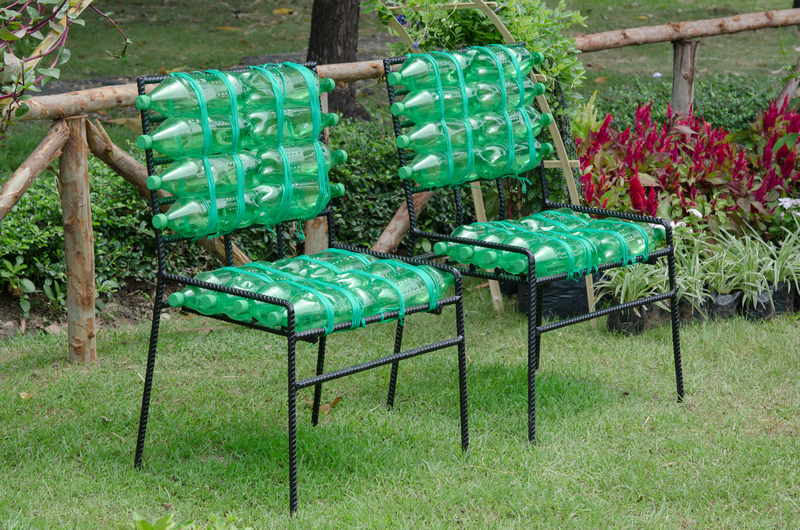Top Tips for Cutting the Cost of Bulky Waste Items
Dealing with bulky waste items--such as old furniture, mattresses, white goods, and garden debris--can be a real headache and an unexpected expense for many households and businesses. However, there are numerous ways to manage large unwanted items affordably and responsibly. In this comprehensive article, we'll share top tips for reducing bulky waste disposal costs, provide eco-friendly options, and explain how you can save both money and time whilst keeping your home and community clutter-free.
Understanding Bulky Waste: What Qualifies?
The term bulky waste refers to items that are too large or heavy for regular household waste collections. This typically includes:
- Old sofas, armchairs, and beds
- Large appliances (washing machines, fridges, cookers)
- Carpets and rugs
- Desks, wardrobes, and other large furniture
- Garden waste like branches, logs, and sheds

Why Do Bulky Waste Disposal Costs Add Up?
If you've recently tried to get rid of a large sofa or a broken washing machine, you'll know that disposing of large waste items can be surprisingly expensive. Some common reasons for these costs include:
- Labour costs for collection and loading
- Transport and fuel charges
- Weight-based disposal fees at recycling centres or landfill
- Environmental taxes imposed on landfill usage
How to Cut the Cost of Bulky Waste Disposal
If you're searching for "cheap bulky item removal" or ways to get rid of old furniture for free, rest assured--there are multiple strategies to minimise or even eliminate these expenses. Below are the best ways to save:
1. Donate or Sell Usable Items
Before throwing anything away, assess whether the item can be reused. One person's waste can be another person's bargain!
- Donate to Charities: Many charity shops accept furniture and white goods, especially if they are in good condition. Organisations like British Heart Foundation or Emmaus often provide free collection services.
- List Items Online: Use platforms like Gumtree, Facebook Marketplace, Freecycle, or OLX. You might not make a lot of money, but even offering items for free can save on disposal costs and help someone in your community.
- Host a Yard Sale: If you're clearing multiple items, a garage or yard sale is a great way to declutter and earn extra cash.
2. Check Local Authority Services
Many local councils offer special bulky waste collections at subsidised rates. Some useful points:
- Annual Free Collections: Some councils provide a limited number of free large-item pick-ups per year.
- Discounted Rates: Even if it's not free, council services can be far cheaper than private companies.
- Book in Advance: Council collection slots can fill up quickly, so book early to avoid paying emergency fees.
You can usually book online or call the council directly. For more info, search for your area's "bulky waste collection service" on your council's website.
3. Share Costs with Neighbours
Are you and your neighbours looking to declutter at the same time? Team up to save!
- Group Bookings: Arrange a shared collection with neighbours to split the cost of a private bulky waste service or hire a skip together.
- Community Clear-Out Days: Some neighbourhoods organise "clean-up days" with discounted rates from private waste removal services.
4. Take Advantage of Council Recycling Centres
Most councils run designated Household Waste Recycling Centres (HWRCs) that accept a range of bulky items free of charge or for a nominal fee.
- DIY Drop-Off: If you have access to a vehicle, deliver the item yourself and avoid collection charges.
- Pre-Book Visits: Increasingly, local tips require pre-booked appointments to manage demand--check their website first.
- Know What's Accepted: Not all centres take the same materials--check before you go to save wasted journeys.
5. Shop Around for Private Collection Services
If you must use a private company for bulky rubbish removal, compare several providers.
- Get Multiple Quotes: Always ask for a written quote to avoid hidden fees.
- Check for Licenses: Only use licensed waste carriers to ensure your waste won't be dumped illegally--you could face a fine if it is!
- Look for Off-Peak Savings: Some companies offer discounts for mid-week or off-season collections.
6. Consider Skip Hire with Caution
Hiring a skip can be tempting for "all-in-one" bulky waste disposal, but it's not always the most cost-effective solution.
- Skip Sharing: Neighbours or friends can split the hire cost and maximise value.
- Choose the Right Size: Overfilling or hiring too large a skip inflates costs--seek guidance on appropriate sizing.
- Check Permit Requirements: Placing a skip on the road usually requires a council permit--another cost to consider.
7. Upcycle or Repurpose Bulky Items
With a bit of creativity, old furniture and materials can be transformed, saving disposal costs and reducing environmental impact.
- DIY Projects: Turn an old ladder into bookshelves or a tired wooden pallet into garden furniture.
- Community Art or Building Projects: Offer materials to local schools, charity projects, or artists in need of supplies.
8. Retailer Takeback and Manufacturer Schemes
When buying a new mattress, sofa or appliance, check if the retailer offers a takeback scheme. For example:
- Appliance Retailers: Many stores now collect your old washing machine or fridge when delivering a new one--often for a reduced fee.
- Mattress and Furniture Companies: Disposal of the old item is sometimes included in the delivery price or offered at a discount.
Important Tips to Avoid Common Pitfalls
- Avoid Fly-Tipping Fines: Fly-tipping is illegal and can lead to hefty fines. Always use reputable, licensed waste services, and ask for a disposal receipt.
- Don't Leave Items on Pavements: Leaving furniture or appliances outside without prior arrangement can result in fines or complaints.
- Check for Hazardous Materials: Fridges, freezers, and electronics (WEEE waste) often require specialist disposal--never attempt to break them up or burn them yourself.
Environmental Benefits of Smart Bulky Waste Removal
Eco-friendly disposal of bulky household items saves money and benefits the planet:
- Reduces Landfill: Giving items a second life through donation, resale, or upcycling keeps them out of landfill sites.
- Supports Charitable Causes: Donated goods help fund worthy charities and support those in need.
- Encourages Recycling: Councils and recycling centres often dismantle collected items, salvaging valuable materials.
Quick Bulky Waste Money-Saving Checklist
- Can the item be reused, donated, or sold?
- Does your local council offer a free or low-cost collection?
- Is there a local community clear-out or bulk collection coming up?
- Can you coordinate with neighbours to share costs?
- Can you dismantle and transport the item to a recycling centre yourself?
- Have you compared prices of several private collectors?
- Will the retailer delivering your new appliance take the old one?
- Is there a creative way to upcycle the item?

FAQs: Bulky Waste Removal and Cost Cutting
How much does it cost to dispose of bulky items?
Costs vary depending on your location, the size and weight of the items, and whether you use council, private, or DIY services. Council collection fees can range from free to ?70+ per load, while private companies may charge more. Donating or self-delivery to a recycling centre is usually cheapest.
Are there free options for bulky waste disposal?
Yes! Many councils offer free or heavily subsidised collection of bulky household waste up to a certain limit per year, especially for elderly or disabled residents. Charity donation services and community recycling points can also provide free solutions.
Can old mattresses, sofas, or appliances be recycled?
Absolutely. Many recycling centres and charities accept mattresses and appliances for recycling, often diverting most of the material from landfill. Always check with the collection service or centre regarding what's accepted and how items should be prepared.
Conclusion: Save Money While Disposing Responsibly
Disposing of bulky waste items on a budget requires a mix of planning, creativity, and community spirit. By exploring all your options--from donation to group collections and recycling centre drop-offs--you'll likely find a way to remove those large unwanted items without breaking the bank. Remember to always use licensed waste carriers and avoid illegal dumping. In doing so, you're not only saving money but also making an environmentally responsible choice--benefiting both your finances and the planet.
For more advice and local information, check your council's website or community forums for the latest updates on affordable bulky waste disposal in your area.
